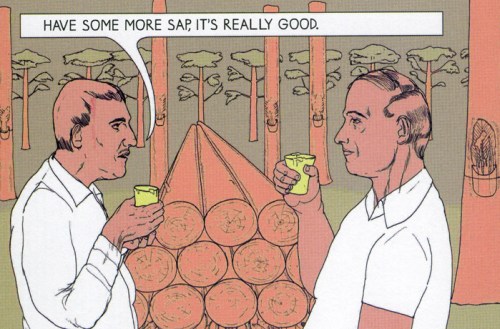I have been reading a lot of work by Jerome Charyn lately. Once you start, it is hard to resist more. Charyn has this passion for seeking the truth that is very seductive. In the case of his latest novel, “Jerzy,” published this March by Bellevue Literary Press, he is compelled to better understand Jerzy Kosinski, author of the celebrated 1965 novel, “The Painted Bird.” It is a fascinating, and often funny, journey written by one of our greatest writers about the rise and fall of another great writer.
Actor Peter Sellers looms large over the book that follows the making of 1979’s “Being There,” the film adaptation of Kosinski’s novel, starring Sellers as the blank slate turned celebrity, Chauncey Gardiner. In Charyn’s novel, Sellers is not much more than a lost man-child, a blank slate in his own right. Sellers hires Ian, a former bodyguard with a taste for literature, to be his all-around wingman. If there is anything Sellers needs in the way of protection or advice on dinner conversation, Ian must step in.
It is not long before Sellers enlists Ian in his quest to have Kosinski agree to have Sellers star in the movie version of “Being There.” It is hardly a walk in the park as Kosinski detests Sellers. Sellers perpetually complicates matters. He is convinced that Princess Margaret fancies him and that he will marry her. And Kosinski is equally complicated. At the most random moments, something will trigger a dark mood and a longwinded rant.
As is made clear, the vacuous Sellers is tailor-made for the role of Chauncey. And Kosinski has very little to complain about, despite his tremendous resistance to Sellers. But the conflict in this novel is far more deep-seated and sinister. Charyn suggests that Sellers and Kosinski have paid too high a price for fame, have been reduced to mere shells of their former selves; and in Charyn’s hands, both become compelling tragi-comic figures.
It is Kosinski who stands in for a great deal of unresolved issues, including World War II and its aftermath. In his novel, “The Painted Bird,” Kosinski challenges the reader to confront great suffering and atrocities. For such a compelling testament, Kosinski would, over time, secure fame. For Charyn, Kosinski is that large-than-life enigmatic Citizen Kane. The harder they come, Charyn concludes, the harder they fall. Charyn plays with the mixed bag of rumors of plagiarism that haunted Kosinski. Today, in a different context, the same techniques of borrowing from other sources would not raise eyebrows. “The Painted Bird” was a novel, not a memoir. Truth is stranger than fiction. And, as Kosinski said himself, “I am a truth, not facts.”
Charyn seems to take Kosinski to task at every turn. He seems to make a mockery of tender scenes in “The Painted Bird” and recollections from Kosinski friends and associates. In Charyn’s novel, Kosinski, like the villagers in “The Painted Bird,” is fascinated to utter distraction with turning old tin cans into homemade flying rockets. Kosinski, also in Charyn’s novel, prefers to sleep inside a large dresser drawer. Kosinski explains that he’s made too many enemies and his life is constantly in danger. However, Charyn is sensitive to life’s contradictions, no matter what misinformation Kosinski detractors may spread. Such work as “The Painted Bird” speaks for itself. In the excerpt below from Charyn’s novel, Ian, the narrator, concludes that Kosinski did not have ghostwriters but those who helped him, up to a point, with his English:
No baby-sitter from here to Mars could have scratched out the icicle-covered sentences in “The Painted Bird.” And after rereading the book for the sixth or seventh time, I realized that suicide was built into its very fabric, as if the narrator were locked into some kind of frozen grief, and had survived the war on fierce will alone. His entire life had become a chess move or chapters pasted onto “The Painted Bird.” Perhaps fate itself was a Russian doll. And Jurek’s leap into the darkness was another matryoshka, a doll without end.
It was a great deal of bile and misinformation from Kosinski detractors that contributed to Kosinski’s suicide in 1991 at the age of 57. And perhaps it was also part of fate. Anyone familiar with the work of Jerome Charyn knows that he’s most interested in the underdog, the person trapped in a corner fighting to find a way out. As the novel progresses, we see how the life and times of Jerzy Kosinski, the truth and the legend, all add up to a subject worthy of Charyn’s fiction.
What Charyn’s novel can do, with its brilliant satirical bite, is compel readers to learn more about Jerzy Kosinski, one of the great writers of the 20th century. It’s as easy as surfing the net to learn more. If you watch the documentary below, for example, you get a multifaceted look at Kosinski, his life and his work. It’s not a simple story, as Charyn’s novel attests. Truth is stranger than fiction and fiction seeks a greater truth:
“Jerzy” is a 240-page paperback, published by Bellevue Literary Press. For more information, and how to purchase, go right here.
















Review: ‘Locomotive / IDEOLO,’ published by Centrala
“Locomotive / IDEOLO,” published by Centrala
“Locomotive / IDEOLO,” published by Centrala, is one beautiful and simple idea brought to life for all its worth: take a beloved famous Polish poem for children and then adapt it for adults. The poem is “The Locomotive,” by Julian Tuwim (September 13, 1894 – December 27, 1953) who is remembered for his satirical and subversive poetry. Listen to “The Locomotive” in Polish and, even if you don’t speak the language, it evokes the strains and struggles of the mighty steam-powered monster. What designer Małgorzata Gurowska and journalist Joanna Ruszczyk have done with this book is provide a unique format upon which to meditate on Tuwim’s poem.
I found this book to be a great form of therapy as I lingered upon each page. Gurowska and Ruszczyk provide an intoxicating mix of light and dark content. We have animals that appear to be undergoing an organized exodus while other animals have been neatly packed as surplus. And the same goes for humans. On the train cars, as we begin, it seems that we have everything we would ever need for anything: a celebration, a riot, the next all-out war. As we proceed from train car to train car, the stakes grow higher, the urgency more crushing. Countless suitcases are stored away never to be reunited with their owners. Troops are deployed. War is imminent or already unleashed.
And amid all the mounting tension, there is a cry for change. The political commentary is sly and well-placed challenging the reader to face difficult questions about national identity, racism, anti-Semitism, and attitudes towards ecology and animals. The design is impeccable and does a great job of evoking a highly regimented state of alert. The clean and sharp silhouettes of rabbits, soccer players, and suitcases will hit you with their significance. Contemplate each page and then spread out the entire book, just like an accordion, to fully appreciate it.
From Julian Tuwim’s THE LOCOMOTIVE:
“Locomotive / IDEOLO” is a 188-page hardcover and is appropriate for ages 9 and up. Visit our friends at Centrala right here.
Share this:
Like this:
Leave a comment
Filed under Centrala, Comics, Design, Graphic Design, Illustration, Poetry
Tagged as Art, arts, Books, Centrala, Design, Entertainment, Graphic Design, graphic novels, Media, Poetry, Poland, Polish, Politics, Pop Culture, Publishing, Social Commentary, Trains